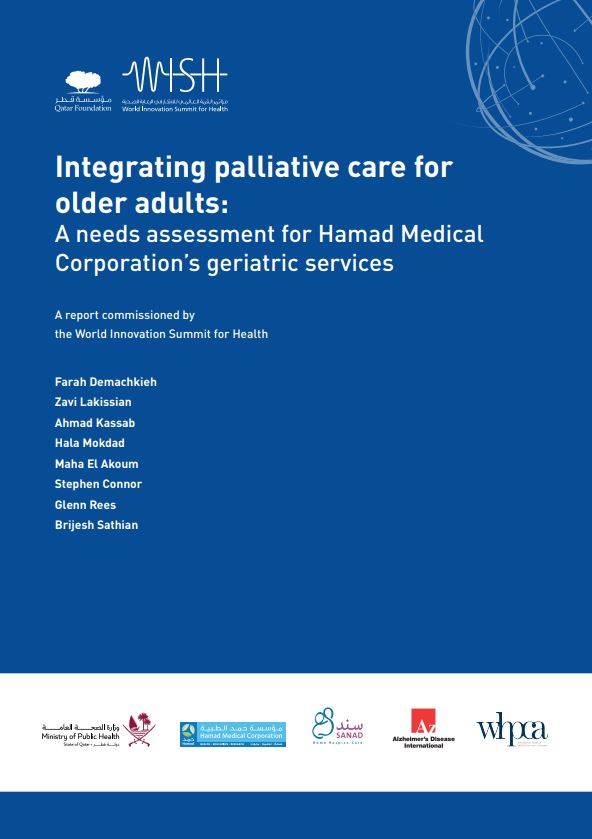Executive Summary
Palliative care is recognized as an essential component of universal health coverage under goal three of the UN Sustainable Development Goals for 2030, yet only 12 percent of the 57 million patients and families in need of palliative care worldwide, receive services. Qatar has long been providing palliative care services for adult oncology patients where around 100 patients receive it annually, yet palliative care is not integrated into the care of patients with other diagnoses. In 2019, a total of 2200 deaths were registered in Qatar, most of whom would have benefited from palliative care.
The global population is growing proportionately older. Qatar is no exception to this dramatic demographic shift. Data indicates that an ageing population faces increasing complications of chronic illness, cognitive decline and functional dependency. The expansion of palliative care services to a more diverse group of patients, including especially the elderly with dementia, has emerged as a national priority in Qatar.
The public healthcare system in Qatar is robust and modern. HMC is the largest governmental provider, with 14 hospitals which include integrative geriatric services, led by the geriatric department at Rumailah Hospital. There are no current hospital or home-based palliative care or end-of-life services that target older patients with non-cancer diagnoses.
This needs assessment was conducted to support the process of establishing a palliative care service model at the geriatric department tailored to the needs of older patients and their caregivers. The assessment explored the perceptions of patients and caregivers, healthcare providers and healthcare management about palliative care, truth telling and healthcare decision making, and death and dying to identify readiness, barriers, and opportunities to the development of geriatric palliative care and recommend the best palliative care models. The assessment included literature review, review of program data, key informant interviews, patient and caregiver surveys, nurse and physician surveys.

